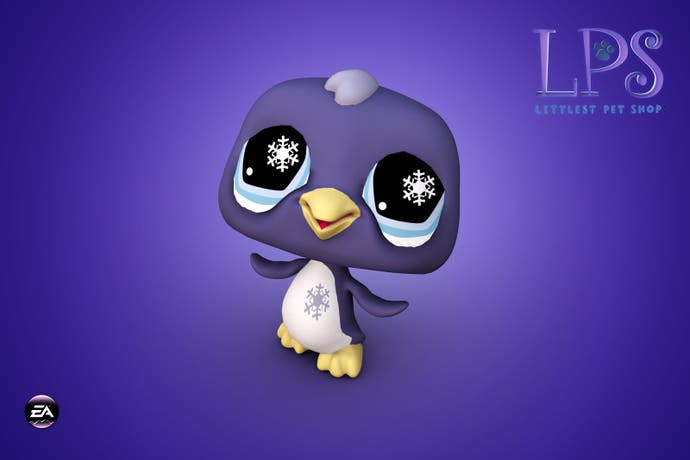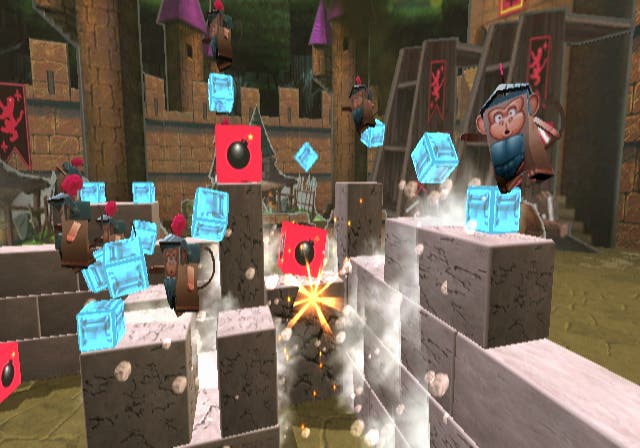EA Casual Roundup
Casual need a break occasionally.
Away from Planet GTA and the column-inch-hogging torrent of associated mega-numbers, another stat smuggled through in a press release this week said just as much about today's games market as any midnight queues outside your local ASDA.
According to UK sales monitor Chart-Track, Wii Fit, which tops this week's all-formats listing, was bought by "roughly one in 10 Wii console owners over its first two days of release". It was the sixth-fastest-selling title in UK chart history, outstripped only by the powerhouse GTA, Gran Turismo and Halo franchises. The figure's even more impressive when you consider Wii Fit costs GBP 69.99 and most retailers' launch day supplies had already been accounted for by pre-orders well ahead of last Friday's release. And that we're mostly clinically obese and bone idle over here.
But Wii Fit's performance over the coming months is likely to be of even greater significance. Whether or not fatties, rolling around with stitch on crumb-covered carpets, consign the Balance Board to the back of the cake cupboard, it's expected to sell consistently for a long time, in a way that all-about-the-opening-weekend blockbusters like Halo simply do not.
It's all down to that horribly imprecise, vague and elusive term the "casual gamer". We can largely blame Nintendo for all the knock-off pet/pony crap clogging up store shelves. Yet Mr and Mrs Casual keep buying them. And we despise them for their risible ignorance and go back to getting wanked off for 20 dollars in Liberty City. But are we missing the point?

EA Casual is the US publisher's year-old division dedicated to flogging games to - horribly imprecise, vague, elusive term alert! - the "non-core gamer". EA reckons it can rake in USD 1 billion by 2010 just on casual games. So it figured it could afford renting out one of those Trendy London Townhouses that smell of Shoreditch to show off its wares both to the 'lifestyle' press (smelled more like Soho), and us (Camden, kebabs), firmly believing that in amongst the virtual zoo of pets and ponies there's stuff that will appeal to gamers.
Not unlike Nintendo Wii House (which EGTV toured ages ago), the EA House has been set up to show casual games "the way people play them". There was a kids' area with Littlest Pet Shop and the Steven Spielberg-designed Boom Blox; gaming portal Pogo.com in the home office; Monopoly in the family room; Harry Potter spellcasting in the home cinema area; and EA Mobile games in the bathroom. Really. Because that's where 10 percent of EA's users play games, apparently.
A big chunk of EA Casual's output is targeted at little girls (with the likes of Hasbro mega-brand Littlest Pet Shop hoping to cash in on the success of Nintendogs) and ladies of a certain age (Pogo.com is aimed at 35-plus women, we're told). While timeless brands like Monopoly carry obvious appeal to families and gift-buyers.
Of greatest interest to us at least were Spielberg's Boom Blox and the return of Harry Potter, so we spent the most time in the house mucking about with this pair. Boom Blox, a 3D puzzle game, is the first title to emerge out of Steven Spielberg's collaboration with EA. Apparently a big gamer, we're told the original idea for this Wii-only title was from the man himself, and he's been heavily involved ever since.
"He was surprisingly hands-on," says senior producer Amir Rahimi. "He came up with the original idea and met with us generally every week if he wasn't off shooting Indiana Jones."

In short, Spielberg is staking his creative reputation on this game. There's no avoiding the line "A Steven Spielberg Game" that prefixes the title. "He understands what it takes to make a game," Rahimi adds, before offering insight into his role in the development process:
"Take all the features we want to make, for example - we'd write them down on little sticky note cards, and then put something up on a board saying, 'Definitely Do', 'Maybe Do', 'Definitely Not Do'. And we allowed all the creative leads to stick the features up.
"And if you look at the distribution, on the development team it was even across the three, but then if you look at Spielberg's everything was either in 'Definitely Do' or 'Definitely Not'. That sums up his attitude. He has to make multi-million decisions like this, so I guess you kind of get used to that mindset."

